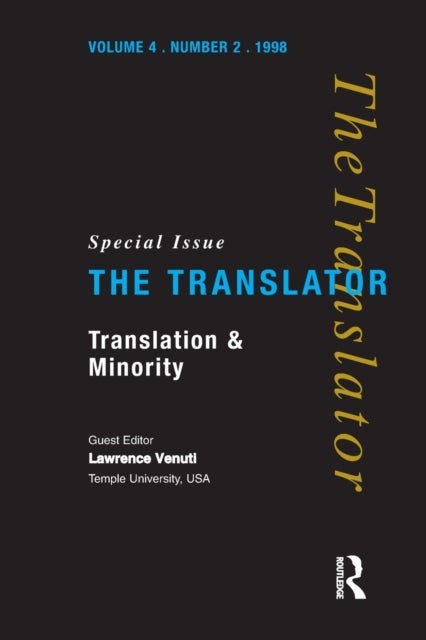
Translation and Minority
559,-
<P>The premise of this volume is a question: What can the concept of minority bring to the practice and study of translation? Minority is understood here to mean a cultural or political position that is subordinate, whether the social context that so defines it is local, national or global. This position is occupied by languages and literatures that lack prestige or authority, the non-standard and the non-canonical, what is not spoken or read much by a hegemonic culture. Yet minorities also include the nations and social groups that are affiliated with these languages and literatures, the politically weak or underrepresented, the colonized and the disenfranchised, the exploited and the stigmatized.</P><P> </P><P>Translation today is itself a minor use of language, a lesser art, an invisible craft that commands less cultural capital and fewer legal privileges than original composition. Yet the focus in this collection is not on what translators worldwide have in common but on the d








